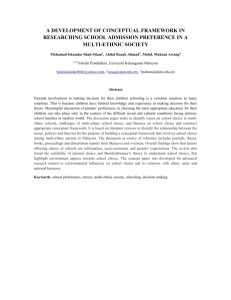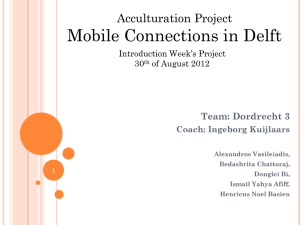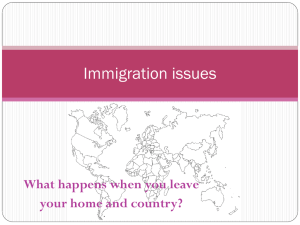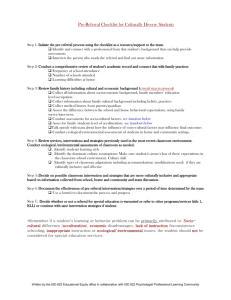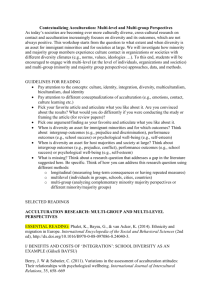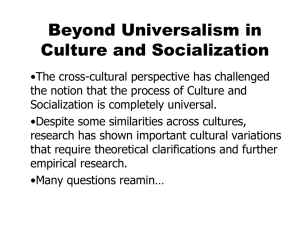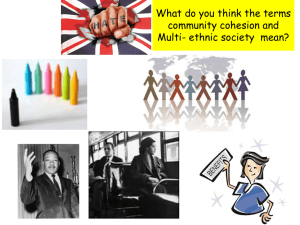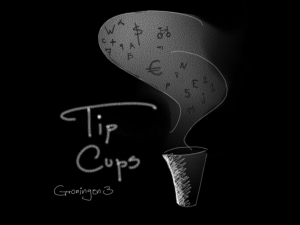Multi-Ethnic Families
advertisement
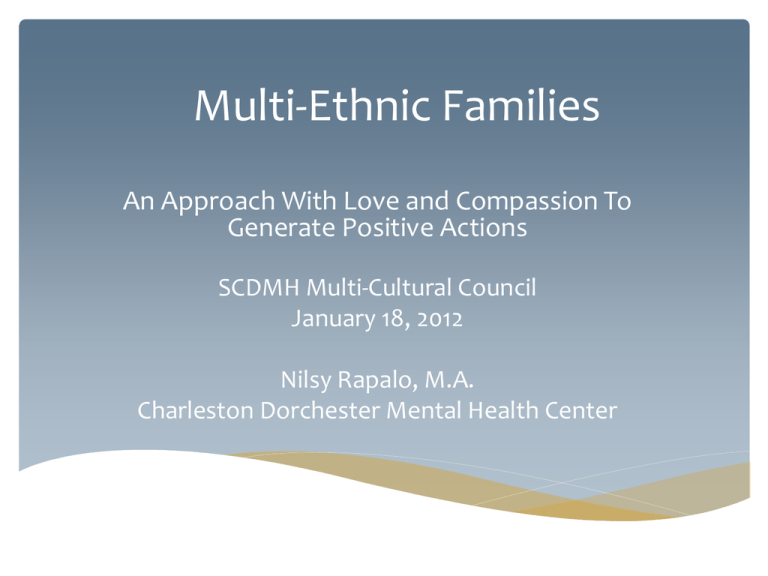
Multi-Ethnic Families An Approach With Love and Compassion To Generate Positive Actions SCDMH Multi-Cultural Council January 18, 2012 Nilsy Rapalo, M.A. Charleston Dorchester Mental Health Center Who are part of a multi-ethnic families? MacGoldrick, Pearce, and Giordano (1982) described ethnicity a sense of commonality that is more than race, religion, or national or geographic origin. Conscious and unconscious process contribute to a sense of identity and historical continuity. Minority Groups • • • • • • • Blacktinos African-Americans Native-Americans Asian-American New Yorican LGBT, Senior Citizens, People with Disabilities Limbo Generation Where do you belong? • Identification Process Exploration where my family came from (heritage, acculturation and traditions) • Demystification • Affirmation (reframe any negative cognition) Turkey with Tortillas? Acculturation is a process which members of one cultural group adopt the beliefs and behaviors of another group. Although acculturation is usually in the direction of a minority group adopting habits and language patterns of the dominant group, acculturation can be reciprocal –that is, the dominant group also adopt patterns typical of the minority group. Hazudas’s Scale (1988) • • • • • Language in childhood, adulthood, proficiency Values of preserving the culture: history/traditions Gender and power role changes. Switching roles based on language access Interaction with members of the mainstream society (higher in kids than adults) • V62.4 Acculturation Problem DSMIV • Pathologies in each generation (self-cut) Wellness versus Fear • Blended families can have experiences from wellness or from fear. • Fear: political asylum, illegal status, adoption, TPS (temporary protection status) • Wellness: education, new job, love. Assertive Assessment Multi-ethnic kids needs a deep assessment of their emotional condition beyond their present condition. We need to talk to the parents about the mixed information that kids can receive from two different cultures like: • “Don’t talk about our family with others (Asian culture) • “Please share your ideas” (American teachers) and • PTSS (Post Traumatic Slave Syndrome). Tolerance as Providers • Learn about new cultures and multicultural positive role model for the kids. (Dr. Quinones) • Keep multi-ethnic materials around your office /home like books, posters, games, dolls that shows your acceptance and tolerance. • Ask about their traditions and the meaning to be a multi-ethnic family for each member. • Express a message of acceptance/understanding. • Explore your own prejudices. Tolerance as a Family • Nothing to be ashamed about who we are. • We are proud of the roots. • We can create our own world with new and old traditions. • Multi-ethnicity is a gift and embrace it. (pizza with Seafood). Kupugani • “To raise oneself up” • “It is not our differences that divide us. It is our inability to recognize, accept, and celebrate those differences”. Audre Lorde (Caribbean-American author) Celebrate the Process • The acceptance is a process that happen to the individual but also to the society after you are willing to leave your comfort zone and reach you middle point between who you are and who are others. • Multi-ethnic are here and are part of the American life. We need to think in different colors and faces. • America is more than hybrid society, it is an enriched country that has evolved and the multi-ethnicity has been a contribution. Thank You For More Information Contact Nilsy Rapalo, M.A. 864-873-5063 Charleston-Dorchester Mental Health Center
